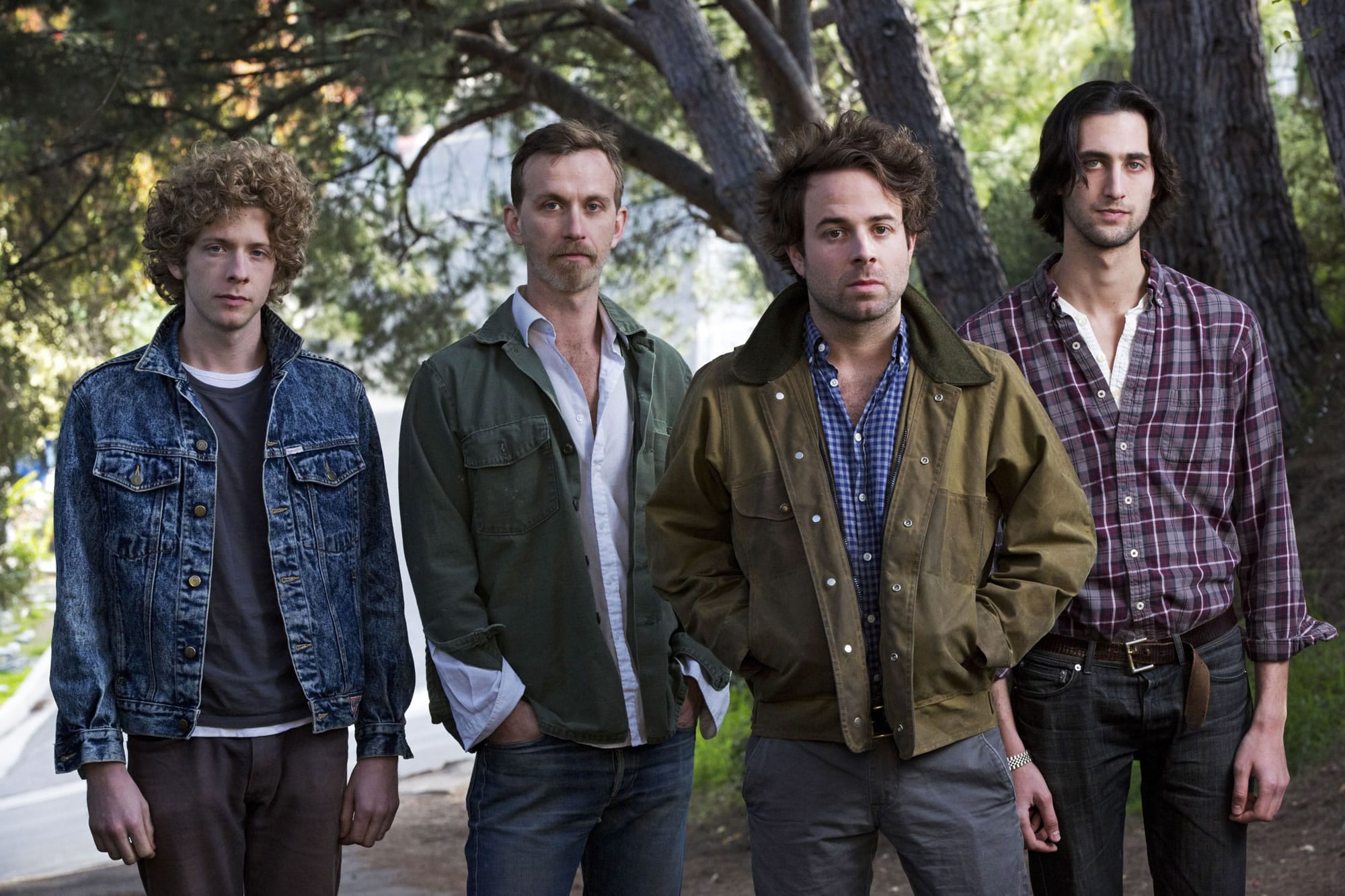In the past few decades, Laurel Canyon in California has taken on a musical mystique dating back to when artists ranging from Joni Mitchell, The Byrds, Crosby, Stills & Nash, Love and Buffalo Springfield called it home in the late 1960s.
In recent years, it’s reacquired that mythos thanks to a short-lived series of singer-songwriter get-togethers hosted by producer Jonathan Wilson. And not unlike the legendary malt shop where the late Lana Turner was discovered, the same fate befell Dawes when Wilson invited the group — led by brothers Taylor and Griffin Goldsmith (sons of former Tower of Power frontman Lenny Goldsmith) — to be part of the Laurel Canyon get-togethers.
Others joining the sessions at Wilson’s house included such like-minded souls as Jenny Lewis (of Rilo Kiley), Benmont Tench of Tom Petty’s Heartbreakers, Chris Robinson of the Black Crowes and Conor Oberst (of Bright Eyes).
The get-togethers strongly informed Dawes’ 2009 debut album, “North Hills,” which was recorded live to analog tape at a studio in — where else — Laurel Canyon, and quickly got on the radar of the music press and American music fans.
But Dawes — bassist Wylie Gelber and keyboardist Tay Strathairn are the other band members — really turned heads with its 2011 sophomore album, “Nothing is Wrong,” an album praised for its rootsy Americana sound wedded to character-driven lyrics.
Couple that album with the left field success of Middle Brother, a quasi-supergroup featuring Taylor Goldsmith, John J. McCauley III (Deer Tick) and Matt Vasquez (Delta Spirit) that released its self-titled debut album in 2011, and one would think Dawes faced substantial challenges living up to such lofty expectations that were building ahead of its newly released album, “Stories Don’t End.”
But not so according to singer/guitarist and chief songwriter Taylor Goldsmith.
“I think the challenge of it all is forgetting about all of (those accolades),” he said in a mid-April phone interview. “I feel like when a band starts being something based on the way people perceive them or try to be something that people want, you run the risk of being seen as inauthentic. It’s more about playing music that makes us happy and not trying to fulfill any kind of identity that other people have put on us. I just feel that would be the worst thing any band could do.”
Dawes, though, is definitely having an impact in bringing a modern connection to its Los Angeles and Laurel Canyon heritage, frequently earning comparisons to one of the artists most identified with the original Laurel Canyon scene, Jackson Browne.
And while Browne has become an avowed friend and colleague of the band, Goldsmith is careful to delineate just how closely he wants to be identified with Browne.
“It’s funny because as much as that’s an honor (being compared to Jackson Browne) because I love his music, it’s also something that it’s important for me to try and find my own voice,” Goldsmith explained. “I want for somebody to hear a song and say that’s Dawes or even hear someone else play and have someone say that sounds like Dawes.”
That quest of an identity is well on its way with “Stories Don’t End,” the third studio album from Dawes. While inspired by Laurel Canyon and Los Angeles, the new album did not come to life there. Instead, Dawes went to Asheville, N.C.’s Echo Mountain Studio to record “Stories Don’t End” with noted producer Jacquire King (past credits include Kings Of Leon, Modest Mouse and Norah Jones).
The surroundings far from California, though, didn’t radically change the kind of music Dawes made with King. Like the preceding two albums, “Stories Don’t End” is defined by introspective songs about love with the occasional nod to Southern California for inspiration. The song “From a Window Seat” uses a view of Los Angeles from the air to reflect existential melancholy, while “Just My Luck” comes across as a piano-kissed confessional.
As such, the Laurel Canyon tag continues to be used to describe the band’s music. This descriptive quirk is something Goldsmith admitted the band embraces — to a point.
“We don’t mind it. I get it in terms of what kind of music it’s referential to and how to define what a band sounds like,” he said.
Yet, as Goldsmith pointed out, there’s more to Dawes’ music than the band’s Laurel Canyon roots and its affinity to the music that came from there four decades ago.
“We also hear people say that they hear some Steely Dan in there or some Dire Straits, Cass McCombs or Will Oldham in there — none of those are Laurel Canyon,” Goldsmith said. “I embrace it because I’m proud that anybody would care enough about our music to try and put it into words, but at the same time if you were to talk to Kurt Cobain about how he thought about the term grunge (in relation to Nirvana), I’m sure he’d say it’s not just that.”




